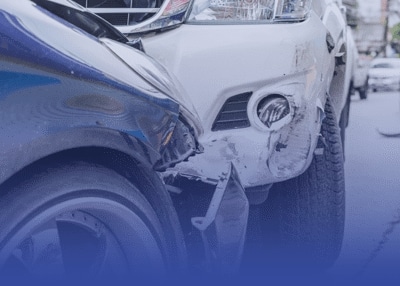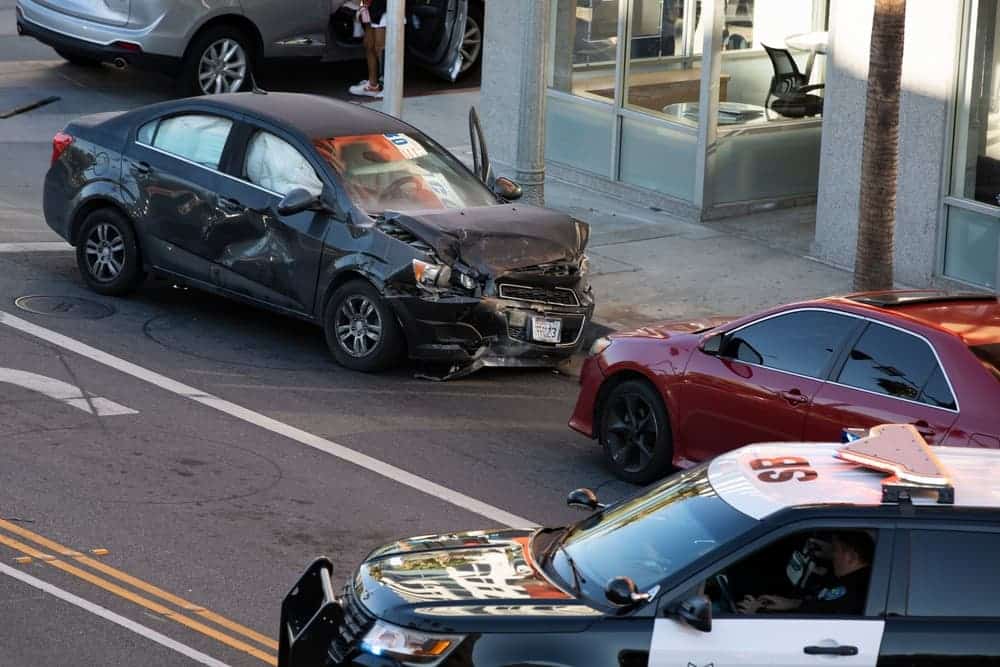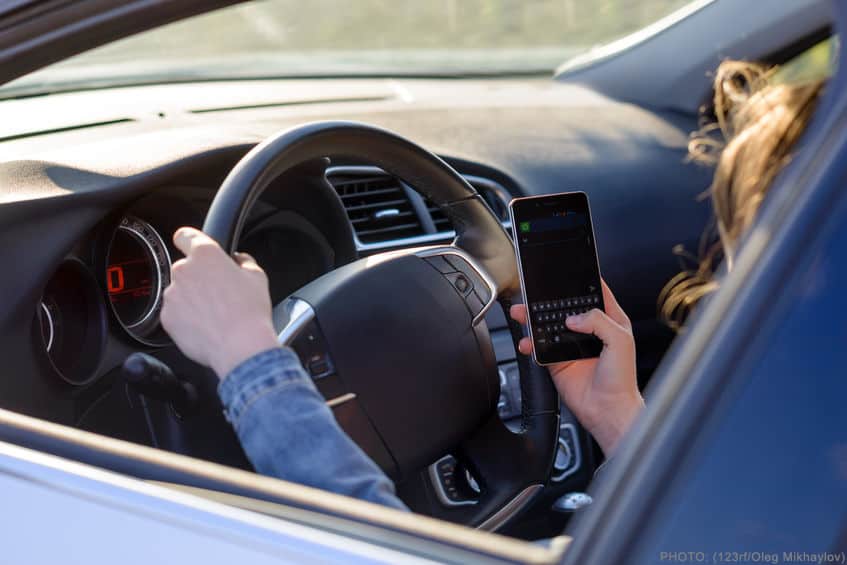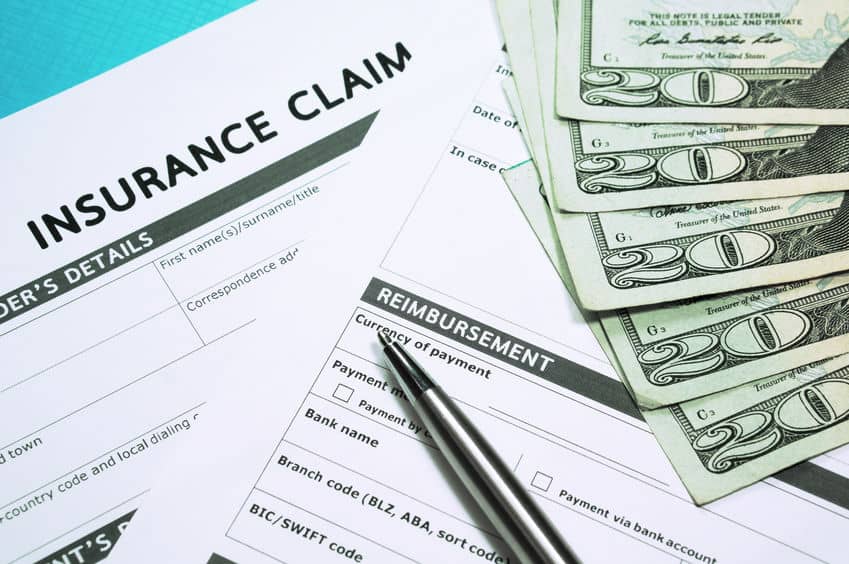21 December, 2023

Written by The Barnes Firm, reviewed by Richard Barnes

Rich Barnes
President
That feeling when you walk out of the grocery store expecting your car to be in the parking lot, only to find an empty space where it once was, is gut-wrenching. Unfortunately, car theft is a common crime. According to the National Insurance Crime Bureau (NICB), over one million vehicles were reported stolen in the United States in 2021 alone.
When this nightmare scenario happens, one of your first thoughts is probably, “Will my car insurance cover this?” The short answer is it depends. Liability insurance generally does not cover theft, but there are some exceptions.
Liability insurance provides financial protection against claims that your actions or inactions have caused bodily injury or property damage to another person. It helps cover the legal costs and damages that can arise from such claims.
The purpose of liability insurance is to protect your assets and future earnings. If you are found legally liable for harm caused to someone else, liability insurance can cover the cost of a lawsuit settlement or court award. This prevents you from having to pay all those costs out of pocket, which could be financially devastating.
Liability insurance policies generally provide coverage for:
Liability insurance will help pay for injuries or damages caused by your ordinary negligence. For example, if you accidentally crash your car into someone else’s vehicle, your auto liability insurance would cover the other driver’s repair costs. Or if a visitor slips and falls in your home, your homeowner’s insurance could pay for their medical bills.
However, liability insurance does not provide coverage for harm to your own property or injuries. If you damage your own car or injure yourself in an accident you caused, your liability insurance won’t pay for those losses.
Separate collision, comprehensive, and medical coverage is needed for first-party property damage and bodily injury claims. Understanding what liability insurance does and does not cover is key to having adequate protection.
Liability insurance provides coverage if you are legally responsible for bodily injury or property damage caused to another person. This includes covering claims if you are at fault in an auto accident that injures someone else or damages their vehicle or other property. However, liability insurance generally does not cover theft of your own vehicle.
Theft and losses from theft are usually considered comprehensive claims, not liability claims. Comprehensive and collision coverage are optional add-ons that provide protection for your own car if it’s stolen or damaged. Liability only covers harm you cause to others, not to yourself.
Overall, liability insurance is not designed to cover the theft of your own vehicle or belongings within it. While liability protects you if you cause harm to others, comprehensive and collision coverage protects your own car from damage, theft, or other losses.
Liability insurance alone does not cover theft or damage from vandalism. For those perils, you need comprehensive and collision coverage.
Comprehensive insurance covers theft, vandalism, weather events like hail or floods, explosions, riots, and collisions with animals. It covers the repair or replacement cost of your vehicle if it’s damaged or stolen. Comprehensive has a deductible you must pay first before coverage kicks in.
Collision insurance covers damage to your car from an accident, regardless of who is at fault. It also has a deductible you pay before the coverage applies.
The main difference between comprehensive and collision is that comprehensive covers non-collision damage from theft, vandalism, weather, animals, etc. Collision only covers damage from accidents. To get the broadest protection, it’s wise to carry both comprehensive and collision coverage.
Dealing with the theft of your car can be a distressing experience, and understanding your options regarding liability insurance is essential in such situations. Liability insurance primarily covers damages you may cause to others, but it doesn’t typically cover theft or damage to your own vehicle. Here are things to consider when your car is stolen.
Before filing a claim with your insurance company, you must report the theft to the police. Law enforcement agencies will require detailed information about your vehicle, such as its make, model, color, and any distinguishing features. Once you have a police report, you can provide it to your insurance company as part of your claim.
Check your insurance policy for the deductible amount associated with comprehensive coverage. The deductible is the amount you must pay out of pocket before your insurance coverage kicks in. Ensure you are aware of your deductible and factor this into your decision-making process.
Insurance policies may compensate you based on the actual cash value (ACV) of your stolen vehicle or its replacement cost. ACV takes into account factors such as depreciation, while replacement cost coverage provides reimbursement for the cost of replacing your vehicle with a similar one at current market prices. Understanding the type of coverage you have can impact the amount you receive.
Some comprehensive insurance policies include rental car coverage, which can be beneficial while you are waiting for the claims process to be completed. This coverage may reimburse you for the cost of renting a vehicle during the period when your car is missing.
If you owe more on your car loan than the insurance payout covers, gap insurance can be valuable. Gap insurance bridges the gap between the actual cash value of your vehicle and the amount you still owe on your auto loan.
Work closely with your insurance company throughout the claims process. Provide all necessary documentation promptly and maintain open communication. Insurance adjusters may investigate the circumstances of the theft before settling the claim.
In some cases, insurance providers may offer additional support services. This could include assistance with reporting the theft to the Department of Motor Vehicles, guidance on obtaining a rental car, or other related services.
When your car is stolen, having comprehensive coverage is crucial to protect your financial interests. Understanding your insurance policy, reporting the theft to the police, and cooperating with your insurance company are key steps to navigate this challenging situation. Be aware of your coverage limits, deductible, and any additional benefits your policy may offer to ensure a smoother process during an already stressful time.
As soon as you realize your car has been stolen, follow these steps:
Liability insurance policies generally do not cover theft. However, there are some factors that may influence whether your claim for a stolen vehicle is approved:
If you have comprehensive or collision coverage in addition to liability, you will likely have coverage for theft. Without these endorsements, a standard liability policy will not cover a stolen vehicle.
Insurers will look for evidence like police reports, surveillance footage, eyewitnesses, etc., to validate your claim. The more proof you can provide, the better your chances.
Details like where the vehicle was parked, if it was locked, and if the keys were taken by force may sway the insurance company’s decision. The less you appear to be at fault, the more likely they are to cover theft.
Long-time customers with a clean claims history are more likely to get the benefit of the doubt from insurers. New customers or those with frequent claims may have a harder time getting theft claims approved without solid evidence.
Even with proper coverage, you will likely need to pay your policy deductible before insurance kicks in. Some may claim theft to avoid the deductible on pre-existing damage. Insurers know this and will scrutinize it closely.
If your insurance company denies your claim for a stolen vehicle, don’t give up. There are still steps you can take to get the claim approved:
To reduce the likelihood of vehicle theft, there are several proactive measures you can take:
If the unthinkable does happen and your car is stolen, act quickly to report it to the police and your insurance company. Provide documentation and cooperate fully with the investigation. If your claim is denied, be persistent in appealing if you believe you are entitled to compensation. Seek legal counsel if disputes cannot be resolved.
“As President of The Barnes Firm, I have dedicated my career to achieving justice in hundreds of cases for the victims of injuries caused through the fault of others. Additionally, I have been honored to have been elected Best Lawyer and a Super Lawyer”
Years of Experience: 30+ years

The Barnes Firm is here to help you. Our personal injury firm helps individuals and their families who
have suffered an injury in an accident.

Whether your car crash was minor or serious, any injuries sustained in an accident can be painful and costly.

All motorcycle accidents are different, the compensation you receive will depend on the circumstances surrounding your accident.

A truck accident can be catastrophic, even in low-impact crashes, if you or your family are involved, you may be entitled to significant financial compensation.

There are dozens of accidents involving school buses each year, most commonly, involving children outside a school bus.
Explore Articles Related to Your Situation

Yes, someone can sue you even if you have insurance in California. Auto insurance may not offe...
read more
The ban on handheld devices while driving was put in place as a response to a rise in distracte...
read more
Car accidents can cause a number of injuries ranging from head wounds to broken bones and bruis...
read more
When something unforeseen like a car accident happens, most people believe that insurance compa...
read moreWe are always available to discuss your case. Give us a call at (800) 800-0000.
Fill out our form and we will contact you shortly to discuss your case
Our attorneys will come to your home, office or hospital at your convenience.
We are available anytime, including after hours and
weekends.
420 Lexington Avenue
Suite #2140
New York, NY 10170
Phone: (800) 800-0000
Fax: +1 (800) 853-5153
600 Old Country Road
Suite #425
Garden City, NY 11530
Phone: (800) 800-0000
Fax: +1 (800) 853-5153
500 Pearl Street
Suite #700
Buffalo, NY 14202
Phone: (800) 800-0000
Fax: +1 (800) 853-5153
451 Grider Street
Buffalo, NY 14215
Phone: (800) 800-0000
Fax: +1 (800) 853-5153
28 East Main Street
Suite #600
Rochester, NY 14614
Phone: (800) 800-0000
Fax: +1 (800) 853-5153
633 West 5th Street
Suite #1750
Los Angeles, CA 90071
Phone: (800) 800-0000
Fax: +1 (888) 800-7050
555 12th Street
Suite #1470
Oakland, CA 94607
Phone: (800) 800-0000
Fax: +1 (888) 800-7050
655 W. Broadway
Suite #940
San Diego, CA 92101
Phone: (800) 800-0000
Fax: +1 (888) 800-7050